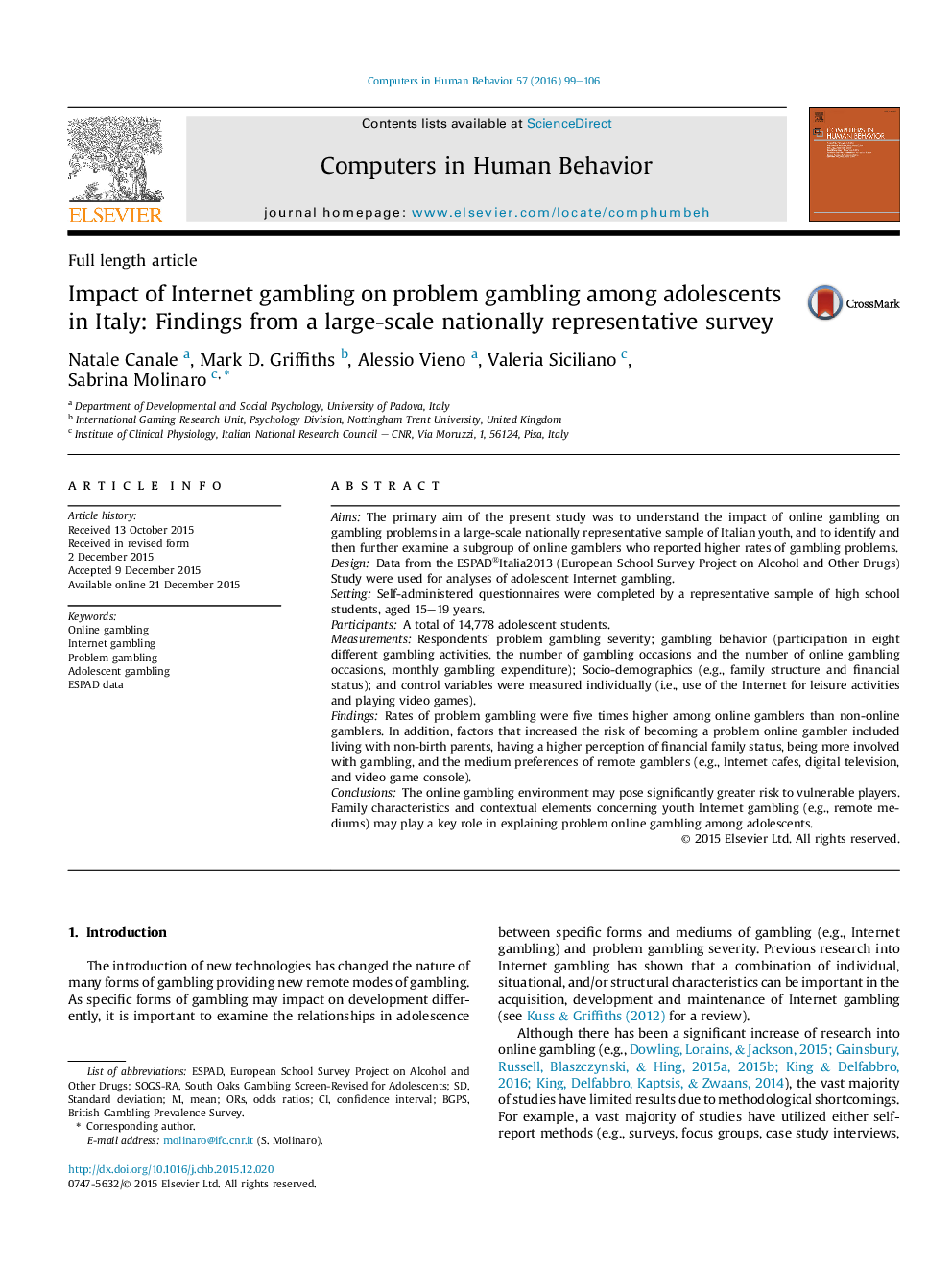| Article ID | Journal | Published Year | Pages | File Type |
|---|---|---|---|---|
| 350218 | Computers in Human Behavior | 2016 | 8 Pages |
•Most studies into online gambling (OG) have used non-representative samples.•This study examines OG in a large-scale nationally representative youth sample.•Rates of problem gambling in youth are five times higher among online gamblers.•Remote mediums increase the risk of youth becoming a problem online gambler.•Family characteristics play a key role in explaining youth problem online gambling.
AimsThe primary aim of the present study was to understand the impact of online gambling on gambling problems in a large-scale nationally representative sample of Italian youth, and to identify and then further examine a subgroup of online gamblers who reported higher rates of gambling problems.DesignData from the ESPAD®Italia2013 (European School Survey Project on Alcohol and Other Drugs) Study were used for analyses of adolescent Internet gambling.SettingSelf-administered questionnaires were completed by a representative sample of high school students, aged 15–19 years.ParticipantsA total of 14,778 adolescent students.MeasurementsRespondents’ problem gambling severity; gambling behavior (participation in eight different gambling activities, the number of gambling occasions and the number of online gambling occasions, monthly gambling expenditure); Socio-demographics (e.g., family structure and financial status); and control variables were measured individually (i.e., use of the Internet for leisure activities and playing video games).FindingsRates of problem gambling were five times higher among online gamblers than non-online gamblers. In addition, factors that increased the risk of becoming a problem online gambler included living with non-birth parents, having a higher perception of financial family status, being more involved with gambling, and the medium preferences of remote gamblers (e.g., Internet cafes, digital television, and video game console).ConclusionsThe online gambling environment may pose significantly greater risk to vulnerable players. Family characteristics and contextual elements concerning youth Internet gambling (e.g., remote mediums) may play a key role in explaining problem online gambling among adolescents.
